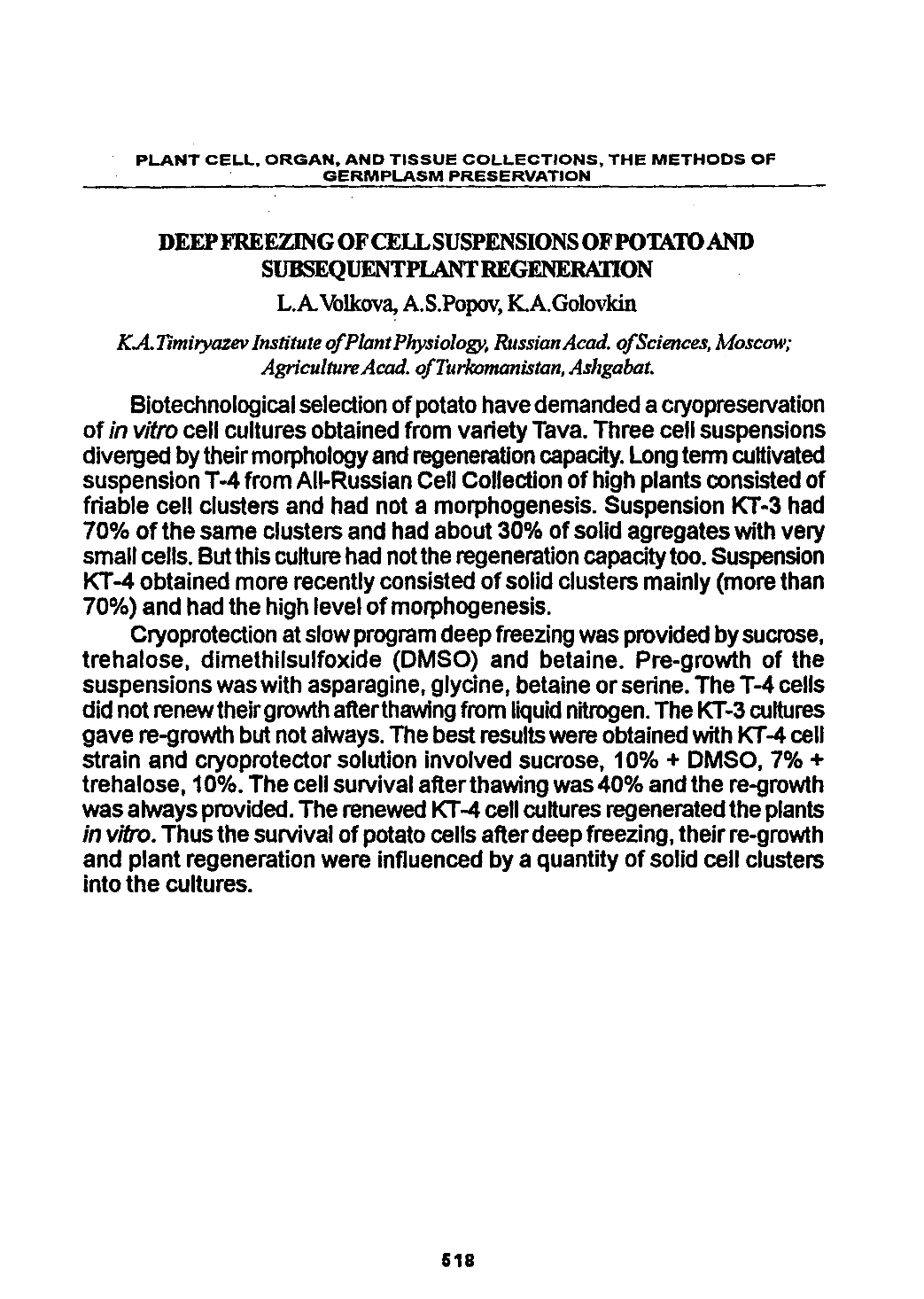

P L A N T C E L L , O R G A N , A N D T IS S U E C O L L E C T IO N S , T H E M E T H O D S O F
6 E R M P L A S M P R E S E R V A T IO N
d e e p
fr e e z in g
o f
c e l l
su s p e n s io n s o f
p o t a t o
a n d
SUBSEQUENTPLANTREGENERATION
L.A.Volkova, A.S.Popov, K.A.Golovkin
K .A.Timiryazev Institute o fPlantPhysiology, RussianAcad. o f Sciences, Moscow;
AgricultureAcad. o fTurkomanistan, Ashgabat.
Biotechnological selection of potato have demanded a cryopreservation
o f
in vitro
cell cultures obtained from variety Tava. Three cell suspensions
diverged by their morphology and regeneration capacity. Long term cultivated
suspension T-4 from All-Russian Cell Collection o f high plants consisted o f
friab le cell clusters and had not a morphogenesis. Suspension KT-3 had
70% o f the same clusters and had about 30% o f solid agregates w ith very
small cells. But this culture had not the regeneration capacity too. Suspension
KT-4 obtained more recently consisted o f solid clusters mainly (more than
70%) and had the high level o f morphogenesis.
Cryoprotection at slow program deep freezing was provided by sucrose,
treha lose , d im e th ilsu lfo x ide (DMSO) and betaine. Pre-grow th o f the
suspensions was w ith asparagine, glycine, betaine o r serine. The T-4 cells
did not renew their growth afte rthawing from liquid nitrogen. The KT-3 cultures
gave re-growth but not always. The best results were obtained with KT-4 cell
strain and cryoprotector solution involved sucrose, 10% + DMSO, 7% +
trehalose, 10%. The cell survival a fte r thaw ing was 40% and the re-growth
was always provided. The renewed KT-4 cell cultures regenerated the plants
in vitro.
Thus the survival o f potato cells afte r deep freezing, the ir re-growth
and plant regeneration were influenced by a quantity o f solid cell clusters
into the cultures.
618
Научная электронная библиотека ЦНСХБ









